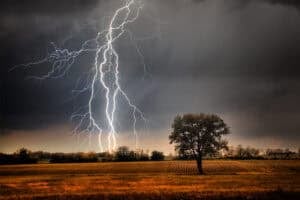Department of Water and Sanitation lead climate adaptation initiatives to tackle mounting water challenges in vulnerable regions

As South Africa grapples with climate extremes like prolonged droughts and devastating floods, the Department of Water and Sanitation (DWS) is taking serious steps to strengthen resilience across the water sector.
Speaking at the Climate Adaptation Readiness in South Africa’s Water Value Chain Workshop in Pretoria on Tuesday, the department’s Deputy Director General (DDG) Deborah Motchotlhli underscored the need for urgent action in climate adaptation strategies.
“As the country is experiencing what could be classified as climate change disasters, we are thus making active strides to mainstream climate change in the water sector, she said.
ALSO READ: Water and Sanitation dept warns of cholera detection in Vaal River
Water management measures
Motchotlhli said the department is currently developing adaptation measures for the Vaal Orange and the Limpopo Olifants water management areas (WMA) which are part of the DWS’s Mid-Term Strategic Framework, aligning with national efforts to manage climate risks more effectively.
“These measures are being developed are based on the climate change risk and vulnerability assessments that were undertaken for these same WMAs in the previous Annual Performance Plans (APPs),” she added.
Certain municipalities, such as eThekwini, the City of Cape Town, and the City of Mbombela, have already begun integrating climate resilience into their water management strategies.
Furthermore, the department’s obligations mandated by national policies and regional and international policy frameworks are outlined in the Water and Sanitation Sector Policy.
ALSO READ: Vaal Dam level continues to drop. Here’s what it stood at this week
Extreme weather events
According to the DDG, extreme weather events are becoming more frequent and intense in South Africa, resulting in a catastrophic impact on local economies, infrastructure, livelihoods and lives.
“The effects of these weather extremes include flooding, landslides, droughts and heatwaves, which exacerbate the challenges of the provision of appropriate quality water and sanitation services,” said Motchotlhli.
She further mentioned that the growing scientific evidence that might link weather events to climate change makes providing sustainable water resources and sanitation systems difficult.
“These emerging climate change-driven issues require urgent concerted efforts to mitigate and provide some adaptation measures to reduce the future impacts, to speedily deal with disasters and return to normality with basic services.
“As the custodian of our water resources, and responsible for ensuring current and future water security and access to safe sanitation, the department is at the forefront of both understanding the risks posed by climate change and initiating the necessary adaptation and mitigation responses,” she concluded.
NOW READ: Mpumalanga dam levels continue to drop. Here’s where they stood this week






